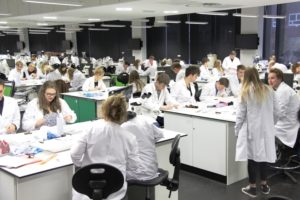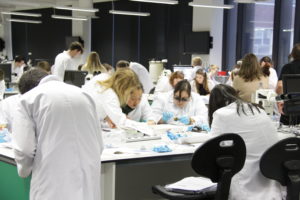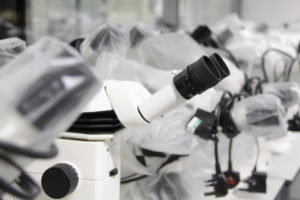How you'll learn
You will be assigned an academic adviser in each of the three years who will provide pastoral care and help you develop your skills for your chosen career path.
To help you meet the intellectual and practical challenges of studying Environmental Science, our programmes are taught using a student-centred approach, involving a range of learning experiences. These include:
- Small tutor groups (typically six-eight students) through all years
- High levels of field and lab-based teaching within the School of Environmental Sciences and in Europe’s most advanced teaching laboratories
- An emphasis on active, problem-based learning (learning by doing)
- Hands-on experience with cutting-edge laboratory technologies
- Supervised independent and group project work, including a final year independent research-based dissertation supervised by a dedicated expert in the field.
How you're assessed
Assessment methods are tailored to the specific needs of each module, and student progression from year to year. A key consideration is that they are designed around the styles of communication, types of problems encountered, and the skills needed, in commercial, research and public sector jobs. Methods include exams, assessed essays, laboratory and computer practicals, online tests, field assignments including field notebooks, poster presentations, research reports and oral presentations. Many assessments involve group work. You will complete a compulsory research project (dissertation) in the final year on a topic of your choice. This is your opportunity to develop skills as an independent researcher, supported on a one-to-one basis by an expert in the field.
Liverpool Hallmarks
We have a distinctive approach to education, the Liverpool Curriculum Framework, which focuses on research-connected teaching, active learning, and authentic assessment to ensure our students graduate as digitally fluent and confident global citizens.
The Liverpool Curriculum framework sets out our distinctive approach to education. Our teaching staff support our students to develop academic knowledge, skills, and understanding alongside our graduate attributes:
- Digital fluency
- Confidence
- Global citizenship
Our curriculum is characterised by the three Liverpool Hallmarks:
- Research-connected teaching
- Active learning
- Authentic assessment
All this is underpinned by our core value of inclusivity and commitment to providing a curriculum that is accessible to all students.







